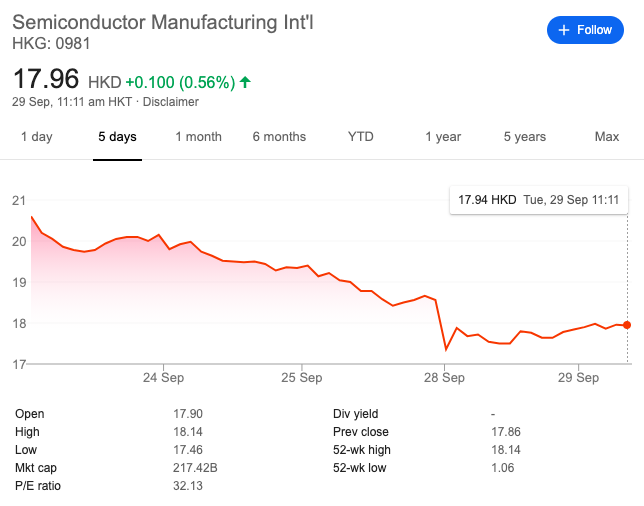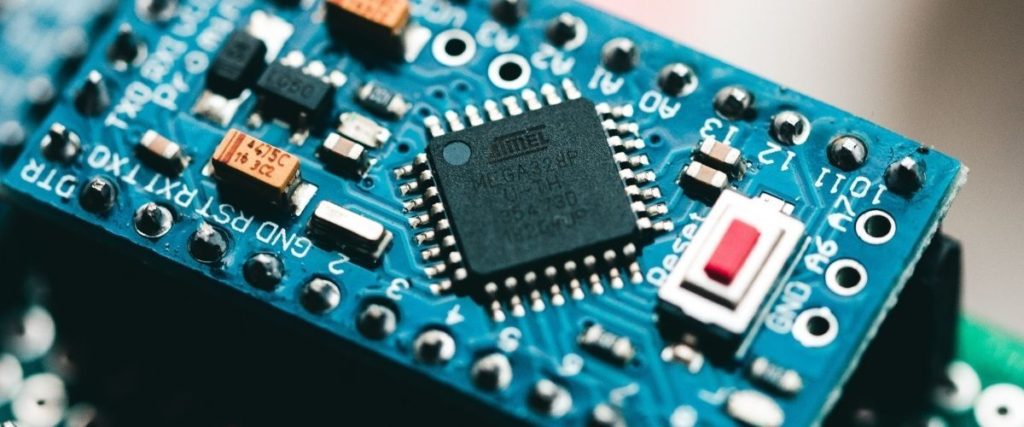Latest US sanctions announced last Friday will now restrict US technology exports to SMIC, China’s largest semiconductor manufacturer, following allegations that the firm could be involved in the development of new Chinese military technology.
Major US suppliers, including Lam Research and Applied Materials, will now need to obtain a licence in order to provide SMIC with crucial manufacturing supplies. The state-owned Chinese semiconductor manufacturer is heavily dependent on US exports – a third of its top vendors are located in the United States, according to the South China Morning Post.
The sanctions risk disrupting supply to SMIC’s biggest customers, Huawei and Qualcomm, a key supplier for Apple and Samsung, and damage long-term relations between the companies, further dividing the US and Chinese technology markets.
The new restrictions will also come as a blow to China and its efforts to position itself as a key competitor in advanced technology. Already, competitors Taiwan Semiconductor Manufacturing Company (TSMC) and South Korea-based Samsung Electronics are seen as more advanced in terms of their microchip development technology.
Hong Kong-listed shares of SMIC fell 3.88%, while Shanghai-listed shares dropped 7% on Monday, following reports of the news.

In a press release on Monday, SMIC refuted the accusation that the firm was connected to the Chinese military, stating, “SMIC reiterates that it manufactures semiconductors and provides services solely for civilian and commercial end-users and end-uses. The Company has no relationship with the Chinese military and does not manufacture for any military end-users or end-uses.”
The sanctions can be seen as a continuation of an April announcement from the Commerce Department that they would be tightening export rules in a move to prevent China, Russia and Venezuela from acquiring American technology that could potentially be used for military purposes. At the time, Department of Commerce Secretary Wilbur Ross stated that “Certain entities in China, Russia, and Venezuela have sought to circumvent America’s export controls, and undermine American interests in general, and so we will remain vigilant to ensure U.S. technology does not get into the wrong hands.”
The letter will further damage the already strained US-China relationship, which has now expanded into a technology war. Throughout his reign, President Trump has continually reinforced restrictions on the export of American technology to Chinese firms, mostly in the name of protecting national security. A multitude of Chinese companies, including telecom giant Huawei, have already been restricted or outright banned from accessing American-made electronic components.
It remains to be seen how Beijing will respond to the Trump administration’s latest actions. Last week, in what many saw as retaliation against Trump’s move to ban WeChat and TikTok in the US, China’s Ministry of Foreign Affairs declared that foreign companies added to a new “unreliable entities list” would be prohibited from investing in China or trading with the Chinese market. The list will target foreign companies who are deemed to be violating normal market transactions in China or taking discriminatory measures against Chinese firms. Suggestions have been made in state media that American companies such as Apple, Qualcomm, and Cisco could be added to the list soon.
Related Articles
Trump’s WeChat Ban Temporarily Halted by US Judge Injunction
SoftBank Sells Arm Limited to NVIDIA for $40 billion in Landmark Sale
Apple Unveils New Product Line, Minus the iPhone 12, Amid Legal Battles





